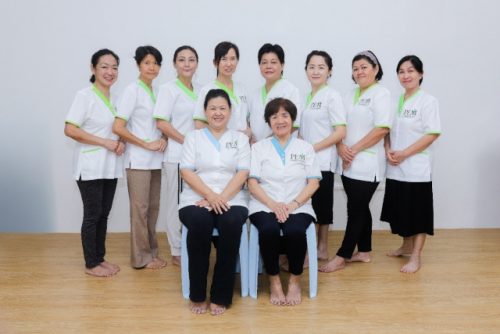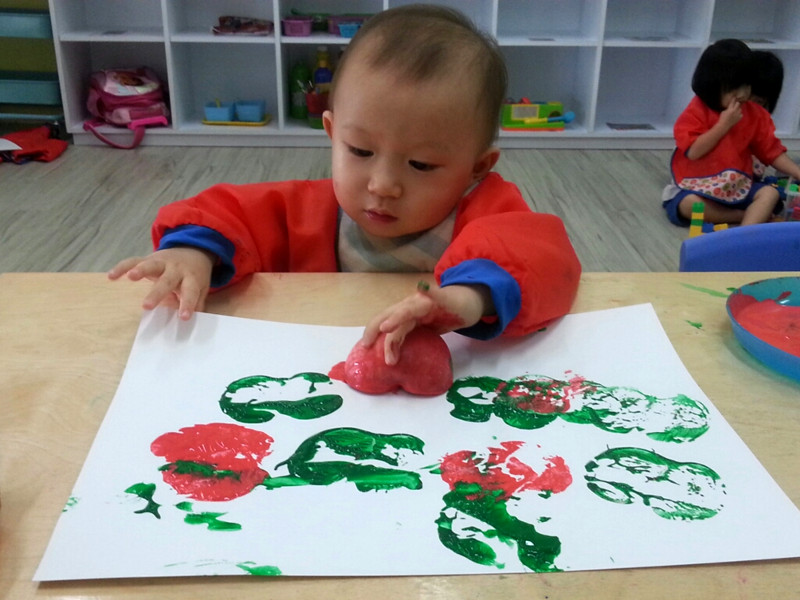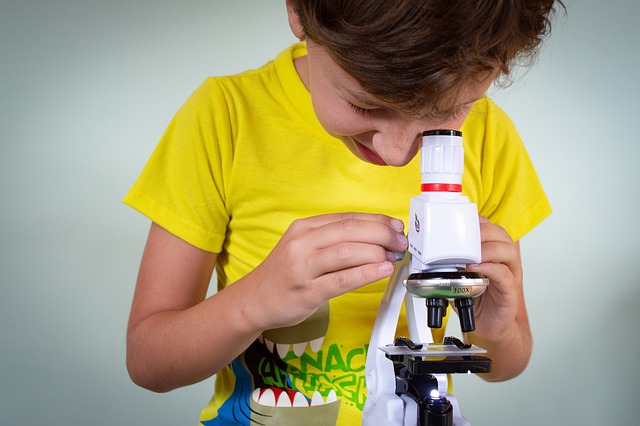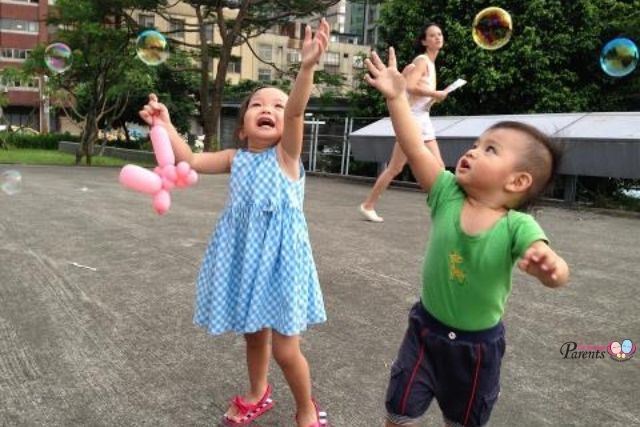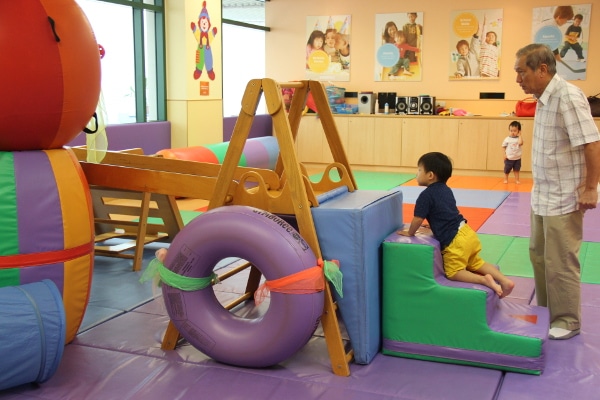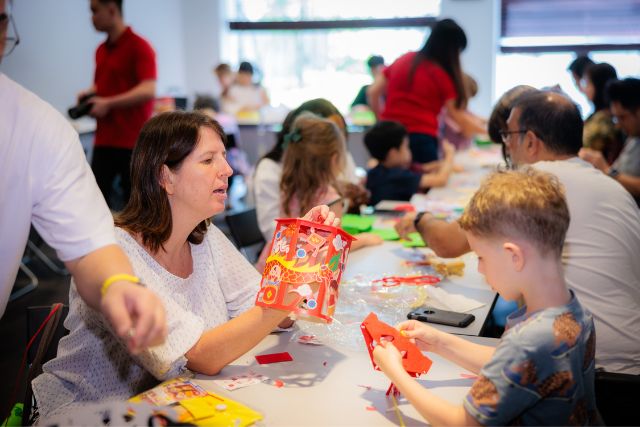There has been much debate about the type of questions our children have to answer in Singapore’s education system. In this day and age, learning must go beyond rote learning such as memorising number bonds and writing ABCs. A good curriculum focuses on developing and equipping children with the right skills that strengthen their learning abilities and thinking skills.
1. Paying Attention
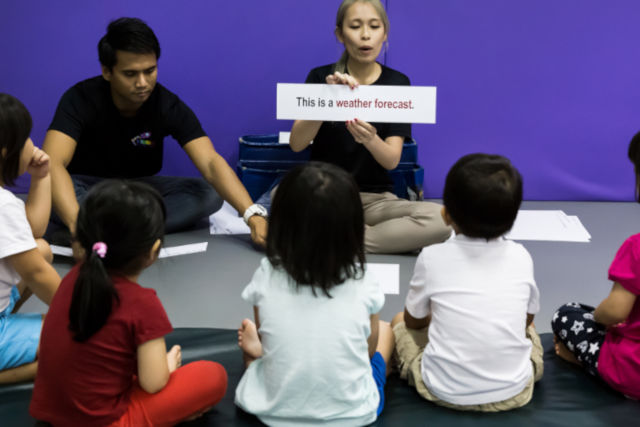
Movement is very important to children’s cognitive development. A good physical curriculum includes a good mixture of balance, mobility, motor skill strengthening and body co-ordination activities.
Balance activities are extremely crucial in stimulating your child’s vestibular system. A strong vestibular system plays an important role in children’s ability to pay attention to any learning activities. At Sparkanauts, children are engaged in a carefully designed rigorous active playtime aimed to stimulate their brains and ability to pay attention.
What you can do at home: Introduce action songs to your children that are coupled with movements. Incorporate actions that involve the large motor skills, fine motor skills, co-ordination of the body or basic gymnastics routine.
⇒ Related Read: How To Develop Your Child’s Motor And Sports Skills
2. Emotional Quotient
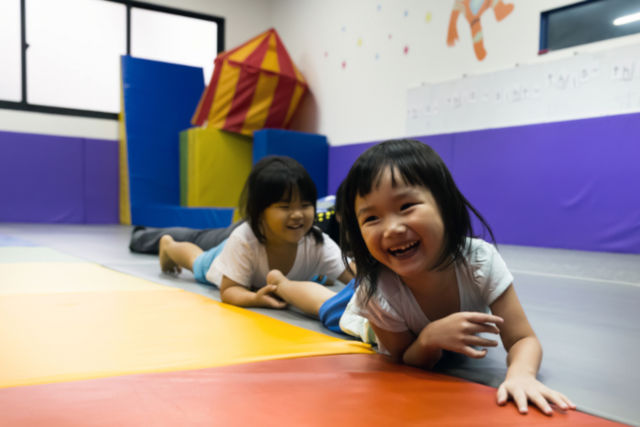
When presented with a challenging task, some children respond with a “I-cannot” attitude. Children with such mentality often take a negative attitude towards learning new things. On the other hand, research indicates that an optimistic mindset is predictive of high academic achievement, health, happiness and career success. Emphasis must be placed on helping them become more resilient.
When children feel secure, valued and encouraged to take intellectual risks, they develop an optimistic, can-do attitude. This attitude will carry them through difficult topics in school and setbacks in life. Such children will be undaunted by setbacks and persist until they succeed.
What you can do at home: When completing routine tasks such as getting changed, eating a meal, refrain from intervening, criticizing and correcting. Give your child time to explore ways to meet their end goal. You can empower them by modelling the right way to complete the task, give them time to try and refine their own solutions.
3. Self-Control
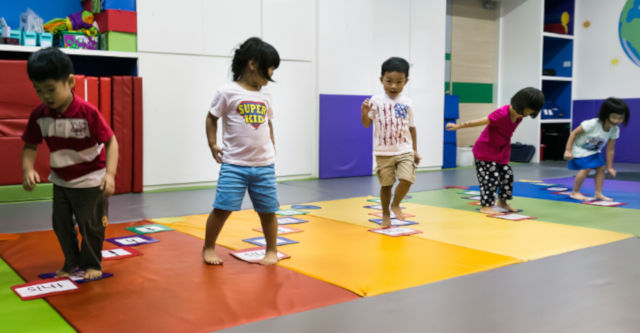
There is a scientific reason behind why young children have shorter attention span, throw tantrums and cry more often. The prefrontal part of the brain which controls their executive function takes a longer time to mature.
Developing your child’s executive function is important. It helps your child to control their impulses and inhibit inappropriate responses. Children learn better if they are able to resist distractions and focus on their learning. Research showed that children with higher executive function ability during the preschool years scored better in mathematics knowledge, letter knowledge and phonemic awareness.
What you can do at home: Establish and inform your child of their schedule. When children are engaged in a predictable schedule, they are better able to manage their impulses and inhibit inappropriate responses. The more they put these abilities into practice, the better they are at using it.
It’s The Proccess, Not The Result
Don’t just teach children what to learn, teach them how to learn. For a young child, the process of learning should be a parent’s and educator’s key focus. Equipping them with the right skills will not only set them up for success in any learning activities, it will also make learning a pleasurable activity for the little ones! Designed to be fun, engaging and purposeful, Sparkanaut’s curriculum adopts a holistic approach towards early childhood development with the goal of helping children enjoy learning and develop the joy for reading.
Photos: Sparkanauts.
By Selene Diong, Principal Instructor of Sparkanauts.
This article was first published in The New Age Parents e-magazine.
* * * * *
Like what you see here? Get parenting tips and stories straight to your inbox! Join our mailing list here.
Want to be heard 👂 and seen 👀 by over 100,000 parents in Singapore? We can help! Leave your contact here and we’ll be in touch.





